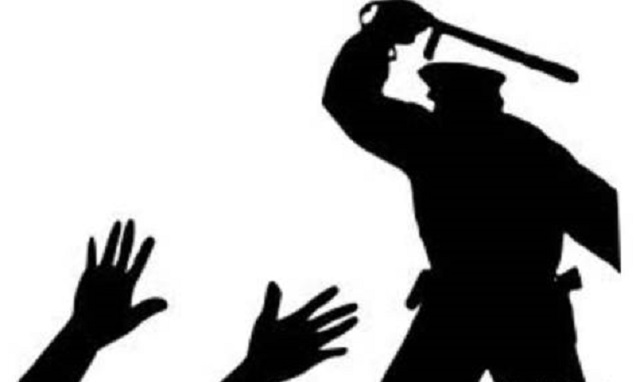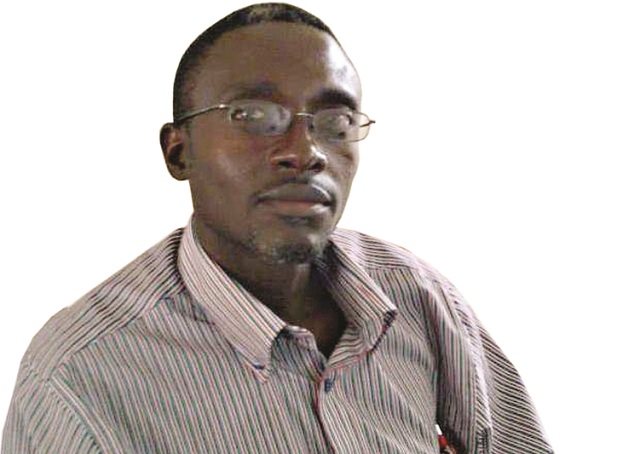Disability is not inability: War-injured farmer dreams of owning a farm


Wheelchair-bound Cde Simbarashe Kushanda poses for a picture in his maize field at Emakhandeni suburb, Bulawayo
Crystabel Chikayi
AT the height of the liberation struggle, Cde Simbarashe Kushanda, then 17, was shot in the leg by suspected Selous Scouts, resulting in the loss of the use of his legs.
He could not continue with the struggle as a result of his injury and had to watch other young men emerge from the war of liberation as victors while he felt helpless in his wheelchair.
But before long, he had picked up the pieces and moved on with his life despite suffering the life-changing injury. Now, he farms on a small piece of land in Emakhandeni suburb, Bulawayo. He sells his produce and earns an income, which is, however, inadequate to meet all his needs and his family’s.
The war veteran’s greatest wish is to own a farm where he can prove himself.
He enrolled at the Esigodini Agricultural College in 1997 and attained a diploma in agriculture before taking up a job as a gardener at Jairos Jiri Association.
“I eventually left Jairos Jiri because the organisation was facing cash flow challenges and couldn’t afford to pay us anymore. That’s when I decided to look for a piece of land to lease in order to get a meaningful income so I could take care of my family,” said the father of seven in an interview at his maize field recently.
He drove himself in his wheelchair with a hoe balanced on his shoulder and a sack of maize seed resting on his lap.
His right leg is weakened but he can stand on it whereas his left leg is paralysed so he sometimes makes use of calipers as he goes about his business.
Cde Kushanda has cultivated a significant portion of his three hectare piece of land.
“I wasn’t born physically challenged, a fact for which I’m soundly grateful. To be whole of limb is, I know from experience, infinitely more pleasant and useful. If that knowledge leaves me open to bitterness at my loss, it’s well worth the occasional stab of pain. I once enjoyed physical soundness although I didn’t enjoy it half enough,” said Cde Kushanda.
He said his quest to liberate the country from British colonial rule was short lived after he suffered bullet wounds in his leg.
“It was in 1978 when we were taken from class so we could join the country’s liberation struggle. We were all excited because we were tired of white minority rule but my dream to fight for this country was shattered before we reached the camp where we were to be based as we were attacked on our way.
I was shot in the leg and when I woke up, I was at a clinic, with a withered leg. I never walked again ever since,” said Cde Kushanda.
He said accepting one’s physical limitations and finding ways of mitigating them is important for anyone who has suffered a body altering injury in their adulthood.
“I may find it easier than others who are physically challenged because I live propped by the acceptance of who I am. Of course, there’re things I can no longer do — I’ll never run again, except in dreams, but I lead an ordinary life, probably like the one I’d have led had I not lost the use of my legs. I’m a man like any other and married with seven children,” said Cde Kushanda.
His eldest son who is 20-years-old helps him in the fields during school holidays.
“I start planting long grain maize in October and it takes about four months to ripen. In January, I’ll be selling the maize and getting money for the children’s school fees. I plant sweet potatoes when I’m done harvesting the maize and sell it in April to get school fees for the second term. I also grow beans in early March,” said Cde Kushanda.
He said the profit he realises does not go towards school fees alone but also caters for groceries and other household essentials.
“My biggest challenge right now is people who steal my produce. They steal my maize and get away with it. At times, the harvest is not as good as I’ll be expecting and they steal the little I have causing a major setback. Crops are at times attacked by disease and I don’t always have the money to buy pesticides,” he said.
“Low produce means little or no profit, no food, no school fees for the children and no rental money. I’m actually in arrears at my children’s school. I pay school fees for five of them while the eldest one is doing a welding course for which he does piece jobs to raise his own fees. One of the children is on a Capernaum Trust scholarship.”
Society has not always readily accepted people living with disabilities with some preferring to link physical challenges to witchcraft or bad luck.
“Some people sympathise with me while others frown upon me. My dream is to own a farm someday. That’s all I pray for. I won’t have to live in fear knowing I’ve a permanent place to call my own,” said Cde Kushanda.
@cchikayi










Comments